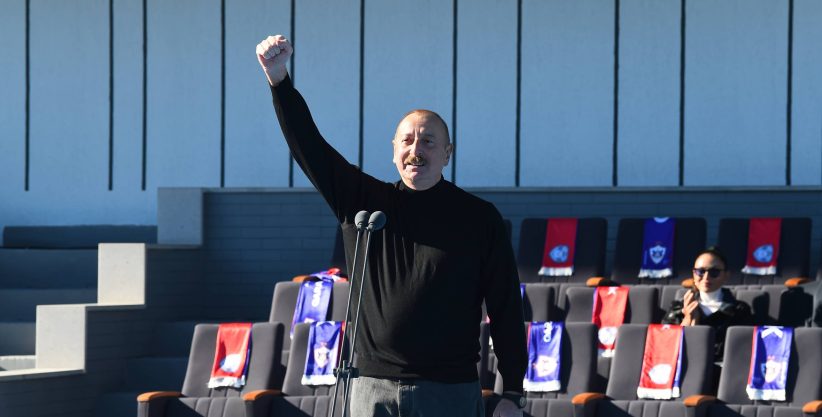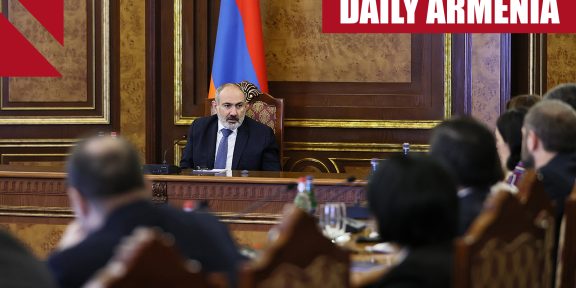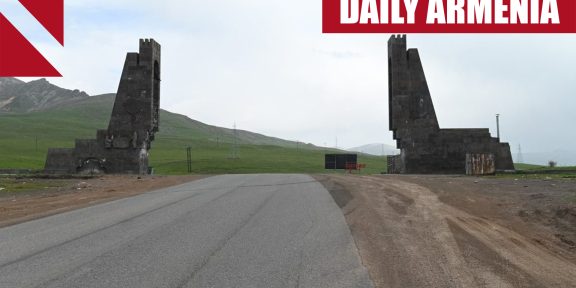In his interview with the Azerbaijani media on January 10, Azerbaijani President Ilham Aliyev made many controversial statements. Aliyev’s interview elicited a strong response in Armenia. Armenian Prime Minister Nikol Pashinyan publicly responded a few days later, noting that the statements coming from Baku dealt a “serious blow to the peace process.”
During the interview, Aliyev essentially reiterated the theses voiced by both official and unofficial speakers of Baku in recent months. However, the significance of this interview lies in the fact that, for the first time, he spoke directly about some well-known circumstances.
The notable statements made by Aliyev were related to three important aspects of the peace process: border delimitation and demarcation, the unblocking of communications, and a treaty implementation or guarantee mechanism.
In his statements concerning the border issue, Aliyev affirmed the thesis proposed in recent weeks by other Azerbaijani officials engaged in the peace process — that the process of reaching agreements on delimitation should be separate from negotiations on the peace treaty.
Aliyev also explicitly stated that the maps of the General Staff of the USSR Armed Forces from the 1970s cannot serve as the basis of the delimitation process. He reiterated the necessity of using historical maps in this process. For the first time, he specified that he was referring to either the period of the first republics of Armenia and Azerbaijan or maps from the Sovietization period of both countries.
Aliyev also publicly expressed another demand related to the border issue, which was likely conveyed to the Armenian side behind closed doors. This demand pertains to the return of four non-enclave villages out of the eight villages that were part of the territory of the Azerbaijan SSR before the collapse of the USSR. It is evident that Azerbaijan has divided the issue of the eight villages under the control of Armenia into two parts. The return of non-enclave villages is Azerbaijan’s mirror demand to Armenia. It aims to neutralize the issue of the withdrawal of Azerbaijani troops from the territories of Armenia occupied in 2021 and 2022. It is apparent that Azerbaijan has no intention of relinquishing control over these territories under any circumstances.
The other key statement of Aliyev’s interview pertained to the unblocking of regional communications. He reiterated more explicitly his previous position, insisting that the route connecting mainland Azerbaijan through Meghri to the Nakhichevan exclave would operate without customs and border control, or there would be no communication links opened between Armenia and Azerbaijan at all. Notably, Aliyev, for the first time in recent months, addressed the importance of ensuring security on that route, referencing the ceasefire declaration of November 9, 2020, and emphasizing the necessity of a Russian presence on the ground.
Another issue directly related to the peace agreement, which Aliyev addressed, is the so-called mechanism of guarantees. On this matter, he articulated more clearly and directly what unofficial spokesmen from Baku’s expert field had previously stated. Azerbaijan is, in essence, rejecting the inclusion of this mechanism in the document and is excluding the involvement of third parties in matters related to the peace treaty.
Azerbaijani pro-government experts have found a new justification for this position: the peace agreement should not alter the geopolitical balance in the South Caucasus and become a tool in the confrontation between the West and Russia. This is intriguing, as Armenian authorities, engaging in the peace process under the auspices of the West, were convinced that Yerevan and Baku shared a common interest in pushing Russia out of the region. The result of this diplomatic approach is that Azerbaijan depopulated Artsakh with the tacit consent of Russia, marginalized the West’s role in the negotiation process after reaping maximum possible benefits from Western platforms, and now discusses the unacceptability of disturbing the geopolitical balance in the region.
In addition to statements directly related to the peace process, Aliyev made many more provocative and maximalist remarks during the interview. And all of this is happening at a time when both Baku and Yerevan are talking about progress in the negotiations. Does this mean that Baku is torpedoing the negotiation process and does not want to sign a document in the coming months? It is not so clear. It simply reflects the fact that Aliyev’s vision of peace differs from the perspectives of the ruling powers in Armenia.
In recent years, Aliyev has consistently asserted that Armenia has lost the war and should unconditionally accept all of Azerbaijan’s demands. In essence, Azerbaijan aims to secure a “victor’s peace” with Yerevan, a resolution that not only avoids any concessions by Baku but also allows it to maintain a certain level of control over Armenia. This is why Azerbaijan removes all key issues from the agenda of the peace treaty, and this is exactly what Aliyev means when he threatens to destroy weapons supplied to Armenia or talks about the need to preserve the strategic positions occupied within the sovereign territory of Armenia.
Read the article in Armenian, Russian
Tigran Grigoryan is the Head of the Regional Center for Democracy and Security, a Yerevan-based think tank.
















